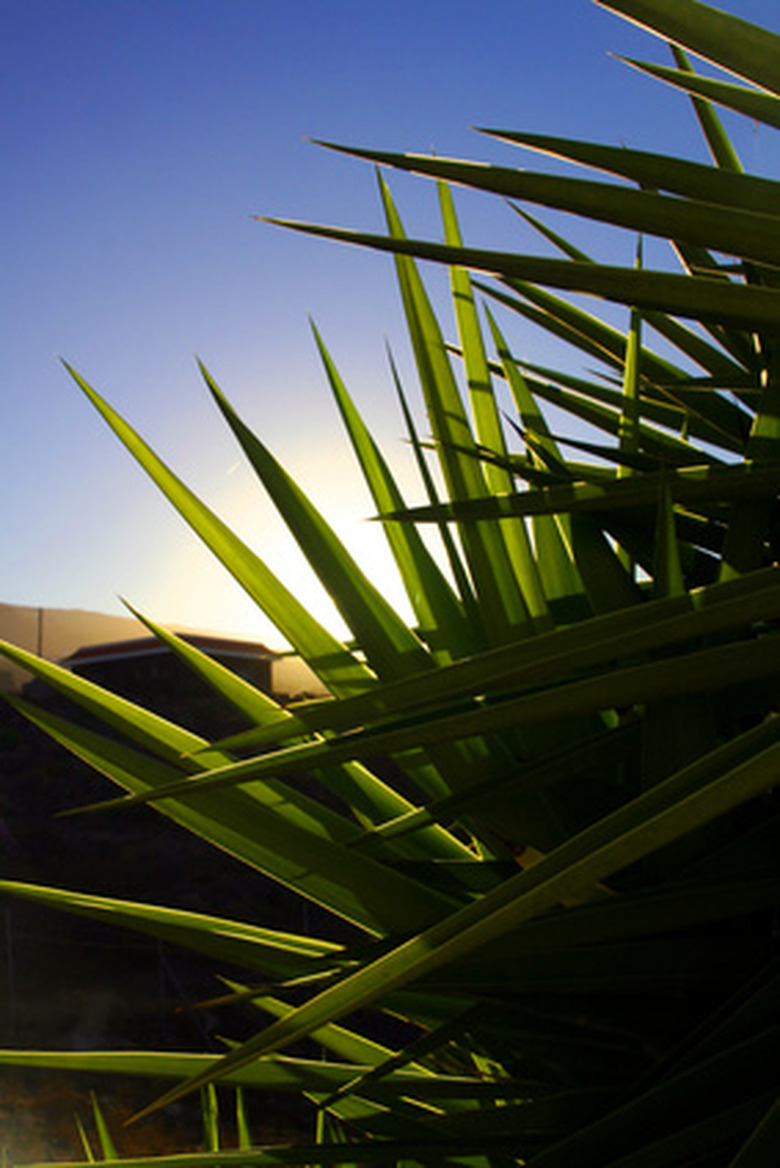How Aquarium Lights Affect Potted Plants
For many homeowners, keeping houseplants means considering how to provide light for those plants. Even sunny windows sometimes won't provide enough light, necessitating supplementation with artificial light. Aquarium lights are compact, easy to find and inexpensive, making them a tempting choice when selecting lights for your houseplants. Make sure you know how the type of light you choose will affect plant growth before installing a new lighting system for your plants.
Light
Light occurs in varying wavelengths, appearing to your eyes as colors. Long wavelengths produce red light, while short wavelengths appear as blue or violet light. Plants use different light colors along the spectrum for various purposes relating to their growth. Likewise, aquarium owners choose different types of light depending on the needs of the organisms in the tank.
- For many homeowners, keeping houseplants means considering how to provide light for those plants.
- Aquarium lights are compact, easy to find and inexpensive, making them a tempting choice when selecting lights for your houseplants.
Function
To carry out photosynthesis, plants use all colors of light except for green. Blue and red wavelengths, in particular, have special importance for plants. Blue light encourages vegetative growth, causing plants to grow healthy leaves and stems. Red light controls flowering, with plants producing flowers when they receive specific amounts of red light during the day. For this reason, the University of Missouri Extension recommends providing plants with primarily blue light and small amounts of red. Because red light does not absorb well through water, most aquarium lights tend toward the blue end of the spectrum.
Types
There are two primary types of aquarium lights: fluorescent and metal halide. Both tend to provide blue light and both come with the recommendation of the University of Missouri Extension as light sources for houseplants.
- To carry out photosynthesis, plants use all colors of light except for green.
Considerations
The blue light emitted by aquarium lights will help your plants to grow lush and green. However, if you want your houseplant to produce flowers, you should supplement its light source with light from the red end of the spectrum. Incandescent bulbs are a convenient source of red light.
Installation
The light color is only one consideration when choosing lights for your plants. The intensity of the light and the amount of time the plant receives light each day also matter. To keep light intense enough, locate aquarium lights 6 to 12 inches from your plants and provide plants with 18 hours of light per day, including any natural sunlight that the plant receives.
